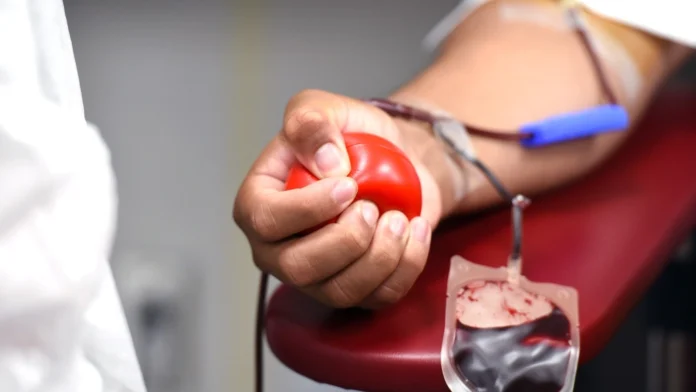World Blood Donor Day, celebrated on June 14th each year, serves as a reminder of the crucial role safe blood donation plays in saving lives and improving health worldwide. Donating blood is an act of selflessness that can have a profound impact on individuals and communities in need. Let’s delve into why safe blood donation is essential and explore some key facts you should know.
Life-Saving Impact: Safe blood donation is a cornerstone of modern healthcare. It plays a vital role in emergency situations, surgeries, childbirth, and the treatment of various medical conditions such as cancer, anemia, and blood disorders. By donating blood, you have the power to save lives and provide hope to those facing critical health challenges.
Blood Types and Compatibility: There are different blood types, namely A, B, AB, and O, as well as positive (+) or negative (-) Rh factors. Understanding blood types is crucial for safe transfusion practices. Patients must receive blood that is compatible with their own to avoid adverse reactions. Regular blood donations help maintain an adequate supply of diverse blood types, ensuring patients receive the appropriate blood products they need.
Blood Screening and Safety: Ensuring the safety of donated blood is paramount. Rigorous screening processes are in place to identify potential infections and diseases. Donated blood undergoes thorough testing for HIV, hepatitis B and C, syphilis, malaria, and other infectious agents. These measures help safeguard the health of both donors and recipients, preventing the spread of diseases through blood transfusions.
Donor Eligibility and Health Assessment: Prior to donating blood, individuals undergo a screening process to determine their eligibility. This involves assessing general health, medical history, and potential risk factors. This careful evaluation ensures that the donation process is safe for both the donor and the recipient. Blood centers adhere to strict guidelines and protocols to maintain the highest standards of safety.
Addressing Blood Shortages: Adequate and safe blood supply is essential to meet the needs of patients worldwide. Unfortunately, many countries experience blood shortages due to factors such as low donation rates, limited access to healthcare, and natural disasters. Encouraging regular blood donations from eligible individuals can help alleviate these shortages and ensure a sufficient supply of safe blood for medical treatments.
Voluntary Donation: Voluntary, non-remunerated blood donation is a cornerstone of a safe and sustainable blood supply. By promoting voluntary donations, we ensure that blood is collected from individuals who genuinely want to contribute to the well-being of others. Voluntary donors are more likely to provide safe blood, free from any undue influence or coercion.
Public Awareness and Education: World Blood Donor Day serves as a platform to raise awareness about the importance of safe blood donation. Educational campaigns, community initiatives, and donor recruitment efforts highlight the significance of this selfless act. Increased awareness leads to a greater understanding of safe blood transfusion practices and encourages more people to become regular blood donors.
In conclusion, safe blood donation is of utmost importance as it saves lives and enhances healthcare services worldwide. By donating blood, you have the power to positively impact the lives of others in critical need. On World Blood Donor Day and beyond, let us recognize the significance of safe blood donation and work together to ensure a steady supply of safe blood for all those who require it.



